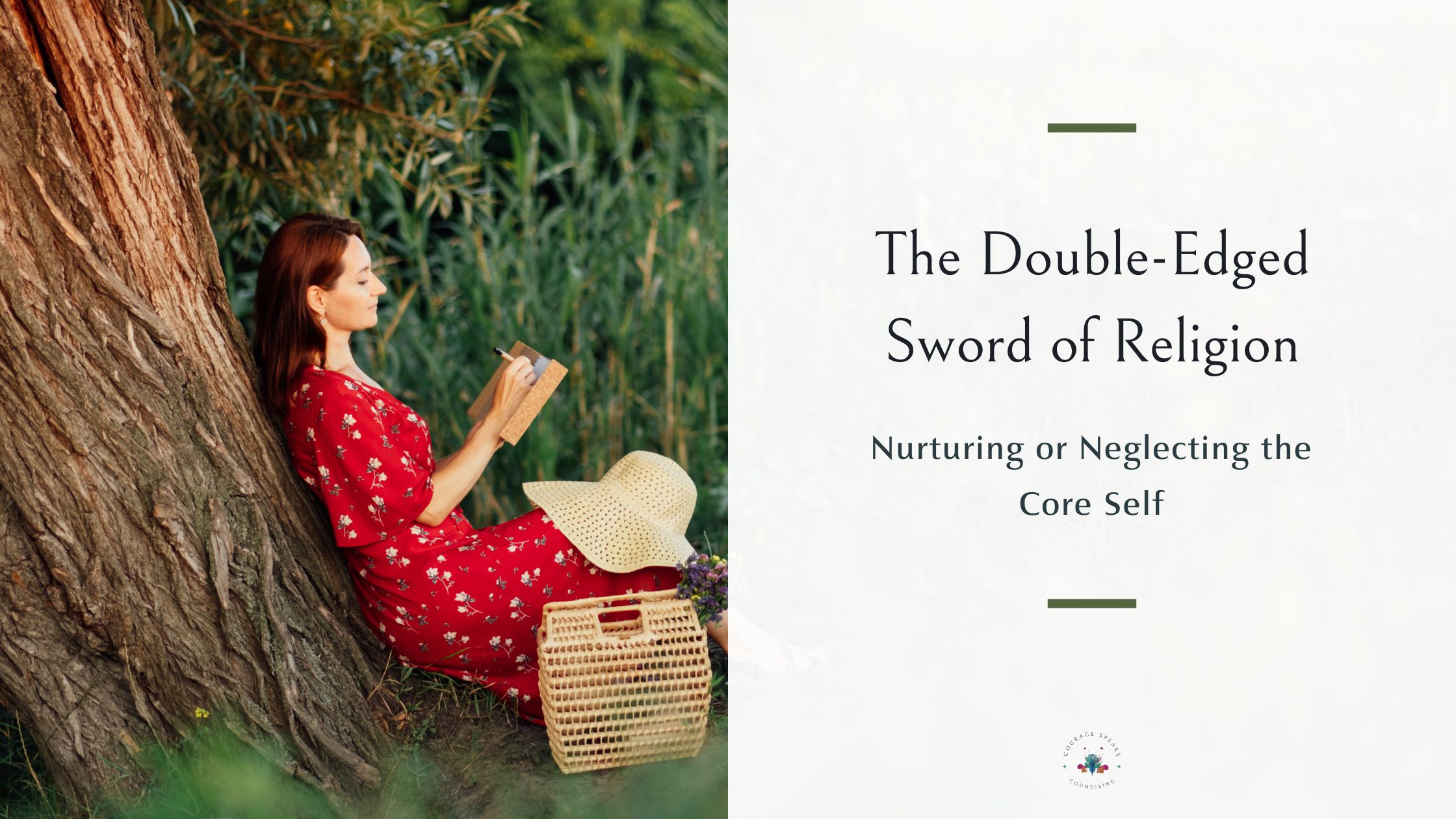
When Our Parents Age: Helping, Fixing, or Controlling?
An exploration of the fine line between compassionate care and overstepping boundaries with aging parents.

Religion holds the power to deeply shape who we are. For many, it’s a source of hope, connection, and meaning. It offers community and shared purpose, a framework for navigating the complexities of life. At its best, it can feel like a warm embrace—guiding us back to what is most true and good within ourselves. Yet, religion can also be a mirror reflecting expectations, shame, and the weight of perfection, sometimes pulling us further from our authentic core.
How can something that feels so rooted in love also cause harm?
From an early age, many of us are taught to see the world through the lens of a particular faith or set of beliefs. These systems often emphasize values like kindness, humility, and service. But over time, the human tendency to focus on external validation—whether through divine approval or community acceptance—can create disconnection.
For example, if the messages you received were about earning love or proving worthiness, it’s easy to internalize the idea that your value is tied to how closely you adhere to those rules. You might find yourself suppressing parts of who you are—your questions, fears, or doubts—out of a fear that they might make you “less worthy.”
This isn’t to say that religion is inherently harmful. It’s about understanding that, like any human institution, it can both nurture and stifle depending on how it’s experienced.
When religion fosters connection—to yourself, to others, and to something greater—it strengthens your core self. Practices like prayer, meditation, or communal rituals can become ways of grounding, bringing awareness to what matters most, and feeling supported.
But when religion becomes a tool for disconnection, the effects can be profound. If belonging requires denying your feelings, shutting down questions, or ignoring your intuition, you may begin to lose touch with your core. You might start living in ways that feel hollow, out of step with your own needs and truths.
This disconnection can manifest as self-judgment, feelings of inadequacy, or even shame. It might show up in relationships, as you struggle to align the version of yourself you show to others with the version of yourself you truly are.
Healing these tensions starts with curiosity and compassion. Instead of asking yourself, “Am I doing it right?” you can begin to ask, “What feels right for me?” This shift allows space for exploration—for separating what aligns with your core from what feels like an external demand.
It’s also helpful to examine where your beliefs have helped you feel connected versus where they’ve caused you to feel disconnected. Consider:
• Do your practices bring you closer to understanding and accepting yourself?
• Do your relationships within your faith community feel authentic, or are they shaped by fear of rejection?
• Are you able to hold both belief and doubt without shame?
These questions aren’t meant to create division but to foster a deeper understanding of what’s serving you and what’s not.
The goal isn’t necessarily to reject religion or to cling to it unquestioningly. Instead, it’s about building a bridge between your spiritual beliefs and your inner world—a connection that supports rather than suppresses.
When religion aligns with your core, it becomes a tool for growth and healing. It helps you see yourself and others with more compassion. But when it asks you to abandon your core—to trade authenticity for approval—it may be time to step back and reevaluate.
Your journey, your questions, and your truths matter. Whether your path involves religion, spirituality, or something else entirely, the most important thing is that it supports you in becoming more of who you are, not less.
Religion, like life, can be a spiral—guiding you closer to your center or leading you away from it. With reflection, you can decide how to walk that path in a way that feels right for you.
Embracing Shadows, Illuminating Hope,
Chelsey Fjeldheim, LCSW
Empowering Souls on the Path of Healing
Copyright © 2025 Chelsey Fjeldheim, Courage Speaks Counseling

An exploration of the fine line between compassionate care and overstepping boundaries with aging parents.

This post examines the delicate balance between protecting privacy and living authentically, urging you to reflect on your true self.

This post examines the paradox where dysfunctional dynamics mimic connection, urging a deeper look into relationship patterns.

Because you matter. You are important. You are worth it.